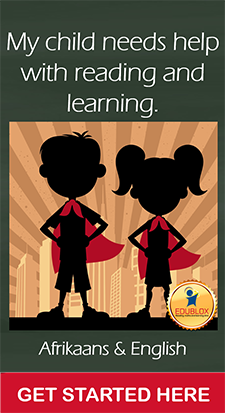

To understand what causes reading difficulties we need to take note of the fact that learning is a stratified process, in which one skill has to be acquired first, before it becomes possible to acquire subsequent skills. It is like climbing a ladder. If you miss one of the rungs you fall off.
Language is the first rung
Di dunia kini kita, tiap orang harus dapat membaca… Unless one has first learnt to speak Bahasa Indonesia, there is no way that one would be able to read the above Indonesian sentence. This shows that language is at the very bottom of the reading ladder. Its role in reading can be compared to the role of running in the game of soccer. One cannot play soccer if one cannot run. One cannot read a language unless one knows the particular language well.
The second rung
The game of soccer consists of many fragmented elements or skills — passing, shooting, heading, etc. Before any child is expected to play in a full-game situation, they should first be trained to pass, shoot and head the ball. It is the same with reading. Cognitive skills, such as visual processing, auditory processing and auditory memory form the foundation of reading, and must be taught first.
Visual processing is one of the important cognitive skills and refers to the ability to make sense of information taken in through the eyes. Visual processing skills include the ability to discriminate between foreground and background, colour, shapes, sizes and position in space. Last-mentioned refers to the ability to accurately perceive objects in space with reference to other objects. A person with a spatial problem may find it difficult to distinguish letters like b and d, as well as n and u.
Auditory processing skills include auditory discrimination. This refers to the ability to hear similarities and differences between sounds. Auditory blending is the ability to put individual sounds together which form a word. The child who has a difficulty in this area is unable to blend the individual sounds in a word, such as /c-a-t/. The child may know the individual phonemes but simply cannot put them together.
Auditory memory important for phonics
According neurodevelopmentalist Cyndi Ringoen, a poor auditory short-term memory is often the cause of a child’s inability to learn to read using the phonics method. Phonics is an auditory learning system, and it is imperative to have a sufficient auditory short-term memory in order to learn, utilise and understand reading using the phonics method.
According to Ringoen, in order to begin to utilise phonics beyond memorising a few individual sounds, a child must have an auditory digit span close to six. Digit span is a common measure of short-term memory, i.e. the number of digits a person can absorb and recall in correct serial order after hearing them or seeing them.
To test the auditory digit span of a child, say numbers slowly in one second intervals, in a monotone voice. Say, for example, 6-1-5-8 and have the child repeat it back. If they can, then say 9-2-4-7-5. The child must be able to say a 4 digit sequence back correctly 75% of the time on the first try to be considered at a short-term memory of 4, and it is the same for each higher digit.
Edublox specialises in educational interventions that make children smarter, help them learn and read faster, and do mathematics with ease. Our programs enable learners to overcome reading difficulties and other learning obstacles, assisting them to become lifelong learners and empowering them to realise their highest educational goals.






Leave a Reply